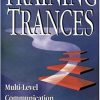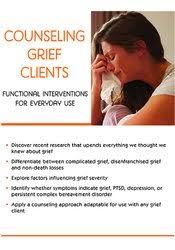Joy R. Samuels – Counseling Grief Clients, Functional Interventions for Everyday Use
$200 Original price was: $200.$75Current price is: $75.
Shopping Instructions:
- DISCOUNT 15% : SHOP15
- Product Delivery: Within 1 – 12 hours after purchase.
The recording will end with a focus on self-care, discussing how to appropriately manage and care for ourselves in this demanding, yet fulfilling, work.
Joy R. Samuels – Counseling Grief Clients, Functional Interventions for Everyday Use
Clinicians often struggle to develop an effective approach to counseling grief clients, due to the uniqueness of each individual’s grief. The last 10-15 years have seen an explosion of new research in the field and many new studies have turned what we thought we knew on its head.
Explore this new research about appropriate diagnosis of grief clients, ideas for how to assess grief severity and related constructs, and clarification about what is meant by “complicated grief” Review the most commonly used current models for understanding grief and leave with tools, including 20 interventions, to more confidently assist clients in navigating the adaptive, yet confusing and difficult, grief process. The recording will end with a focus on self-care, discussing how to appropriately manage and care for ourselves in this demanding, yet fulfilling, work.
- Articulate current models for conceptualizing grief and how these influence treatment planning.
- Analyze and differentiate clinical symptoms to diagnose grief clients appropriately.
- Implement functional interventions for grief counseling adaptable to use with any clients.
- Demonstrate three new interventions to use with bereaved clients.
- Determine when grief has become “complicated” and develop an appropriate treatment strategy.
- Develop strategies of self-awareness and self-care for grief counselors as it relates to clinical practice.
Would you like to receive Joy R. Samuels – Counseling Grief Clients, Functional Interventions for Everyday Use ?
THE JOURNEY OF GRIEF
- Models for understanding grief
- Older, familiar models
- Current theories and approaches
- Grief expressions
- Emotional and cognitive
- Physical manifestations
- Behavioral
- Social behaviors and societal reactions
- Predictors and mediators of the experience
- Background: grief is highly individual
- Personality and other vulnerability factors
- Who died; quality of relationship
- Social, contextual and cultural influences
- Mode of death
- Other influences
- Non-death losses
ASSESSMENT AND DIAGNOSIS OF GRIEF-RELATED SYMPTOMS
- Differential diagnosis between depression, grief and PTSD
- Persistent complex bereavement disorder
- Use of adjustment disorder diagnosis with grief clients
- Measurement/assessment of grief symptoms
WHEN GRIEF BECOMES COMPLICATED
- Common trajectories for grief
- What is “complicated” grief and how do you recognize it?
- Treatment interventions for complicated grief
TREATMENT STRATEGIES AND FUNCTIONAL INTERVENTIONS
- Grief counseling
- How is it different from other types of counseling?
- Who often benefits (and who may not)?
- Components of a general approach
- The 3 Rogerian conditions
- Power of presence
- Being a companion/therapist for your grief clients
- Cross-cultural and other diversity considerations
- Dealing with emotional intensity
- Grief vs. trauma
- When clients’ grief is disenfranchised
- Working with couples or families who have experienced the “same” loss
- Preparing for grief “spikes”
- Post-traumatic growth
BEING A GRIEF COUNSELOR
- The risks and joys of this work
- Self-awareness
- Self-care
- Training opportunities in this field
LIMITATIONS OF THE RESEARCH AND POTENTIAL RISKS
- Disparity in results across studies for grief
- Risk factors for complicated grief
Joy R. Samuels – Counseling Grief Clients, Functional Interventions for Everyday Use: Sample
Here’s What You’ll Get in Joy R. Samuels – Counseling Grief Clients, Functional Interventions for Everyday Use
Related products
NLP & Hypnosis
NLP & Hypnosis
NLP & Hypnosis
NLP & Hypnosis
NLP & Hypnosis
NLP & Hypnosis
NLP & Hypnosis













